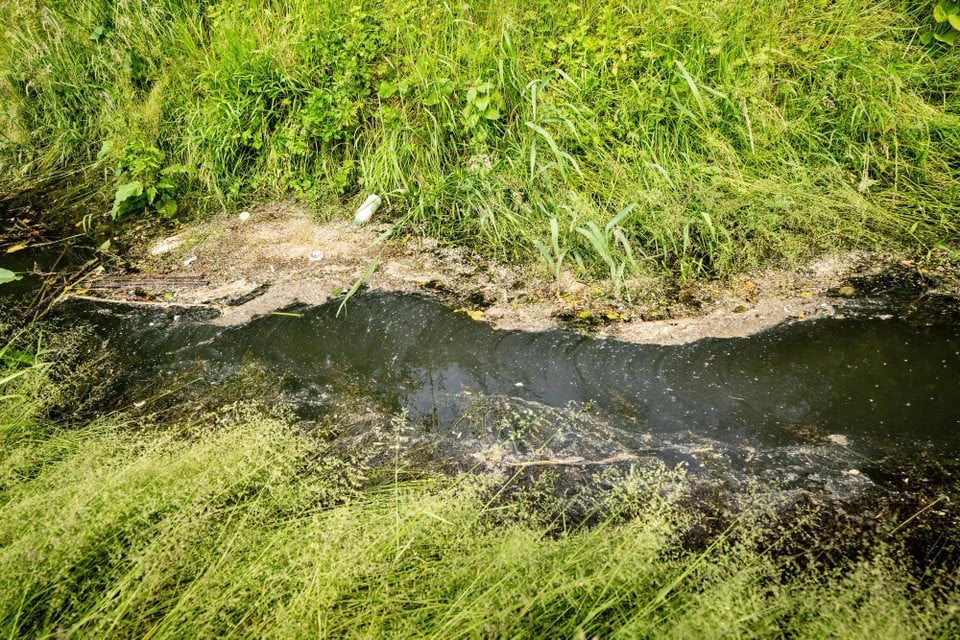Petrol price rises by 4 centimes

Despite the no to the motorway expansion: the gasoline price will probably increase by four centimes in 2027
The street lobby raises the alarm: it wants to prevent an increase in the gasoline price by 4 centimes. The Federal Council is intended to do without a saving measure at the expense of the drivers.
It was one of the great controversy in the voting struggle for the expansion of the motorway last November: would the gasoline price increase or not? Of all things, the left fueled the city-land grave and warned that the rural population would have to finance the expansion of the highways in the centers with higher gasoline prices.
Minister of Transport Albert Rösti defended himself with hand and foot against this argument: This template has no influence on the gasoline price, because the six projects it contains would only have to be financed from 2033he said in an interview with this newspaper. Prioritization of the projects could prevent the increase in the gasoline tariff.
But now the discussion is given new food: triggered by the street lobby. The Association of Strasse Switzerland warned on Tuesday before an increase in the gasoline price. « We are alarmed, » says director Olivier Fantino. Because for the first time ever, the reserves of the fund for national roads and agglomeration (NAF) decreased last year – by almost 200 million francs to 3.4 billion.
And this trend is likely to continue, states. The rapid decline is not only due to ongoing construction projects, but also with the reduction in the insoles decided by the Federal Council in the NAF. Fantino demands: « The federal government must forego further austerity measures in the NAF deposits, otherwise it provokes an increase in the gasoline price by 4 centimes from 2028. »
The fund reserves drop to CHF 18 million
In fact, the look at the federal financial planning shows that the NAF reserves decrease rapidly. At the end of 2027, they were still CHF 561 million, and CHF 18 million at the end of 2028. However, the federal government does not attribute the acceptance to its own savings measures: « Due to the high investments, the fund reserves between the end of 2024 and at the end of 2028 will decrease by 2.9 billion (–72 %) to 18 million, » the federal government in the financial planning from the end of August 2024. During this period, investments increase by an average of 1.1 percent per year. The money is used, among other things, for the construction of the second Gotthar tube.
The law stipulates that the Federal Council can increase the mineral oil tax surcharge by four centimes, in the year before the fund reserves drop below CHF 500 million. In its financial planning, the federal government assumes that this will be the case in 2027. That would rinse CHF 240 million a year in the NAF.
Strassenlobby accuses the Federal Council of Salamitaktik
Strasseweiz still wants to avert this increase – and defends itself that the federal government shortens its deposits in the NAF by CHF 100 million annually. This measure is planned in the 2027 relief package, which is currently in consultation. The Federal Council proposes a number of austerity measures, especially in order to be able to finance the growing expenses for the army and the AHV.
Strassweiz director Fantino speaks of a “salami tactic” of the Federal Council. The drivers had already made their savings contribution. In fact, ten percent of the mineral oil tax revenue has been redirected to the general federal treasury instead of the NAF since last year. For this, electric cars are no longer exempt from automotive tax.
Taxation of the electric cars
The question is whether an increase in the gasoline price can actually be averted if the saving measures were dispensed with. The fund would then have a reserve of 218 instead of CHF 18 million at the end of 2028. This would also decrease the fund stand below the 500 million franc border. Fantino says that he does not assume that the forecasts will actually arrive in accordance with financial planning because there are often delays in construction projects.
It is also clear now: The federal government also wants to ask the owners of electric cars more to the checkout in the future – to compensate for the decline in mineral oil tax. The Federal Council will send a project to consultation this year. In the optimistic scenario, electric vehicles from 2030 are taxed.








